The coronavirus pandemic – what young scientists are doing for others

"I shall devote only a few lines to the expression of my belief in the importance of science ... it is by this daily striving after knowledge that man has raised himself to the unique position he occupies on earth, and that his power and well-being have continually increased.”―Maria Skłodowska-Curie
Beyond established research programs directly addressing the coronavirus pandemic, early-career scientists and medics have been offering skills and energy in various projects that are often local, grassroots or voluntary. What’s it like to be involved? Here’s a look at a few inspiring examples from Poland.
Providing PPE
The campaign 'Korona z glowy' (https://koronazglowy.pl/), founded on the initiative of doctors and students of the Medical University in Poznan, is coordinating voluntary assistance to hospitals, nursing homes and other centres at the front of fighting a pandemic. The campaign’s name is a play on the word ‘corona’ and translates as ‘the crown falls off the head’. The campaign site contains detailed instructions on how to sew masks, where to transfer personal protective equipment (PPE) and how to print 3D face shields.
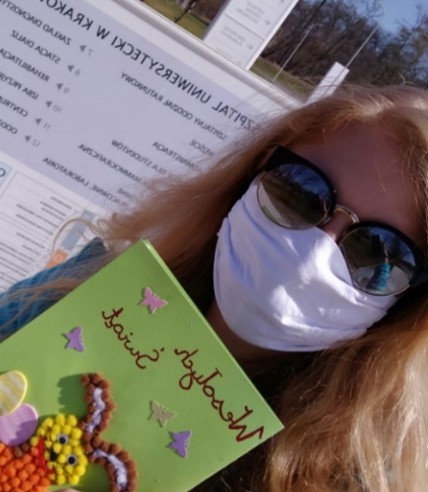 Gosia Gackowska, an intern doctor from Krakow who also contributes to scientific research, is co-organizing the action of Korona z glowy in Krakow and explains more.
Gosia Gackowska, an intern doctor from Krakow who also contributes to scientific research, is co-organizing the action of Korona z glowy in Krakow and explains more.
“In Malopolska, we cooperate with the Medical Chamber in Krakow and numerous organizations, such as 'Face shield for a medic', 'Masks for Kraków medics' and the 'Mimo Wszystko' foundation for the disabled. We have helped ten hospitals and seven social welfare homes by donating a total of 784 face shields, 3226 face masks, 1700 gloves, and many other personal protective equipment.
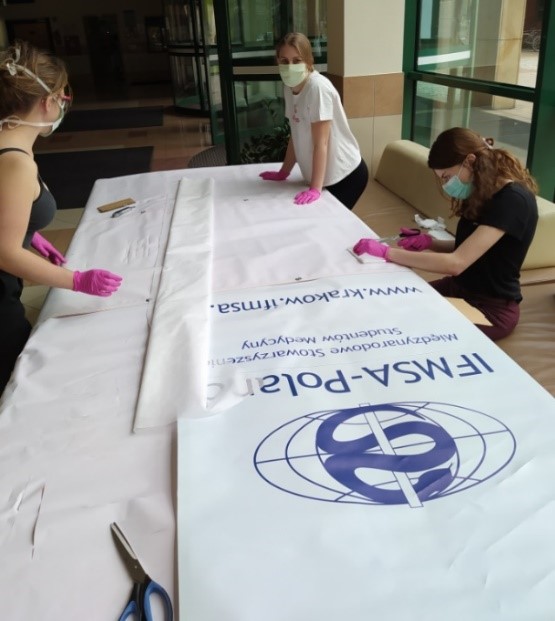
We have tested the filtration efficiency of various types of masks, so we can be sure that medical personnel in contact with coronavirus have the best possible protection – our scientific enthusiasm led us to identify the most effective filter material. Our volunteers have already prepared 107,300 filters from it, of which 18,100 have already been sent to medical personnel fighting the pandemic. We are currently involved in the 'Armor for Medic' action together with the Student Union of the Jagiellonian University and Krakow theaters, in which we will sew protective suits.
Most of our volunteers are medical students and doctors who combine charity activities with full-time hospital work. We work after hours, on weekends and in almost every free moment. Each of us has a slightly different schedule, and some help us remotely, so we can adjust the schedule of volunteering to our daily duties. It is not easy for us, but thanks to the hard work and help of many people we have achieved a lot and we are facing new challenges.”
Diagnostic testing
At the Institute of Bioorganic Chemistry Polish Academy of Sciences in Poznan 'The Viral Support Group' assists regional Sanitary and Epidemiological Station to perform SARS-Cov-2 tests (https://www.ibch.poznan.pl/en/home/).
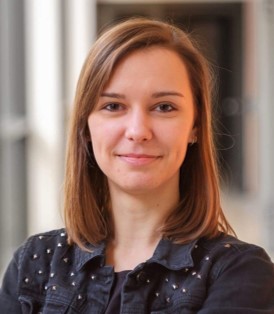 Ania Mleczko (a FEBS YSF 2019 committee member) got involved. “We decided to do that simply because we all know how to perform genetic tests, and we had all needed equipment and, what's important – the more tests, the better! We all are volunteers, and we were the first Scientific Unit to help to test coronavirus. When I heard about this initiative I decided to join the group and fight with coronavirus directly. I think we were a good example because now, more and more scientific units are helping in diagnosis too. This is not all we do – we have also developed the first Polish coronavirus test: it is also based on qRT-PCR but all the ingredients are made by Polish companies and the tests will be much cheaper than imported from abroad.”
Ania Mleczko (a FEBS YSF 2019 committee member) got involved. “We decided to do that simply because we all know how to perform genetic tests, and we had all needed equipment and, what's important – the more tests, the better! We all are volunteers, and we were the first Scientific Unit to help to test coronavirus. When I heard about this initiative I decided to join the group and fight with coronavirus directly. I think we were a good example because now, more and more scientific units are helping in diagnosis too. This is not all we do – we have also developed the first Polish coronavirus test: it is also based on qRT-PCR but all the ingredients are made by Polish companies and the tests will be much cheaper than imported from abroad.”
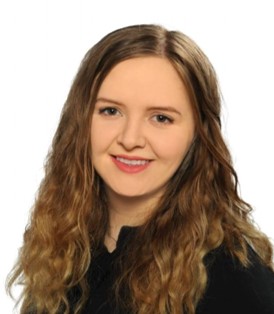 Anna Wasilewska also joined the group and isolates RNA virus from patient samples. “Our work allows the next group to prepare RT-PCR, which is the last step to receive results about possible virus infection. This job is very important for me because it helps with my mental health to know that I can give help to others.”
Anna Wasilewska also joined the group and isolates RNA virus from patient samples. “Our work allows the next group to prepare RT-PCR, which is the last step to receive results about possible virus infection. This job is very important for me because it helps with my mental health to know that I can give help to others.”
Emotional support
Both Ania Mleczko and Anna Wasilewska are also volunteers in the 'Dr Clown Foundation', which aims to bring a smile to children in hospitals. When hospital visits had to stop after the COVID-19 outbreak, efforts have gone online in the preparation of funny or educational videos for children (e.g. https://www.facebook.com/125684004116010/videos/190385899075023/).
Ania Mleczko adds: “We also have an action 'Wysyłam uśmiech' ('I'm sending a smile') to thank and support all people who are fighting COVID. We wanted to engage the whole of Poland to take a picture with a card with a hashtag #wysyłamuśmiech and post it on the social media and thank all the medics, shop assistants, mailman and all people that work, so we can stay at home.”
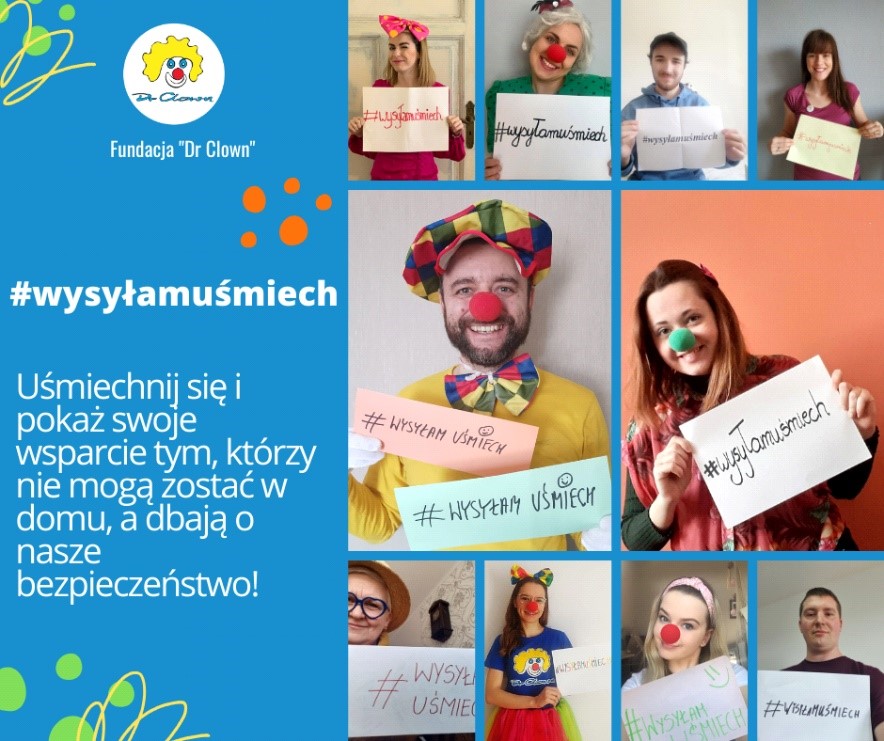
These few Polish examples show how important the current use of science and the tools created thanks to it are to help and heal. But it also shows how important the role of people in science, including young scientists, is – their creativity, ingenuity and optimism in bringing hope and giving a smile.
If you have similar examples around you or you engage in some positive activity yourself, I encourage you to share it here in the comments!
Top image of post: by Tumisu from Pixabay



Join the FEBS Network today
Joining the FEBS Network’s molecular life sciences community enables you to access special content on the site, present your profile, 'follow' contributors, 'comment' on and 'like' content, post your own content, and set up a tailored email digest for updates.